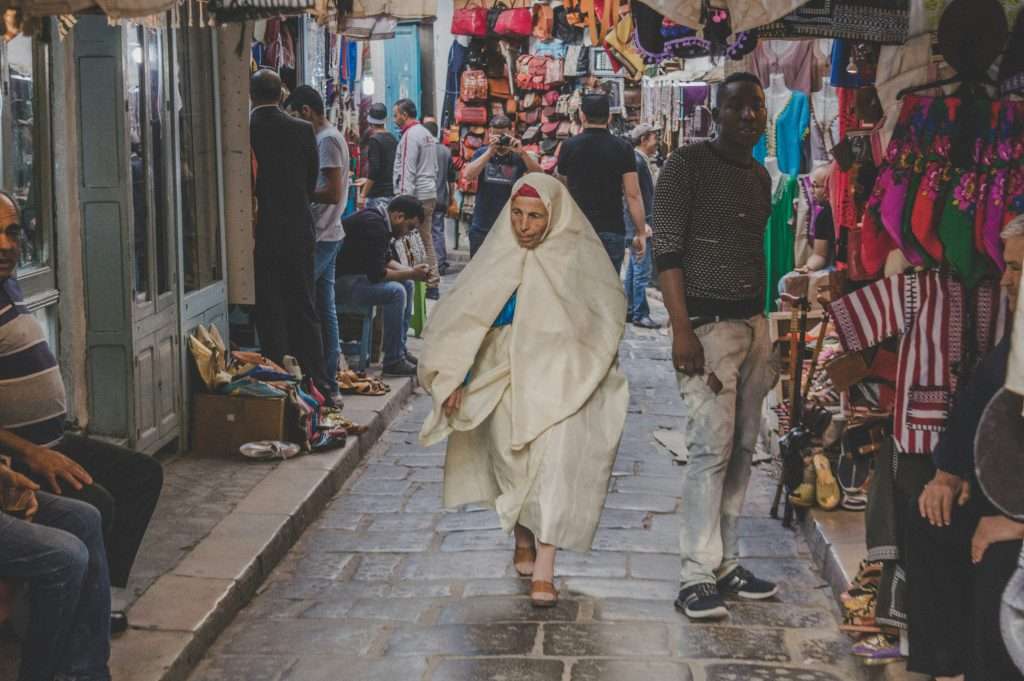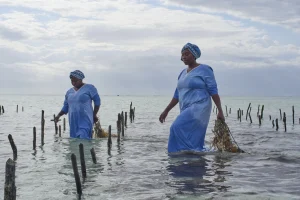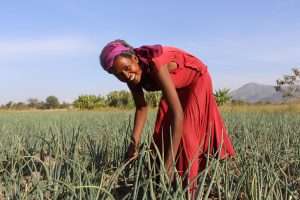Disabled women protected by Tunisia’s new domestic violence shelters

Women with disabilities will now be protected by Tunisia’s new domestic violence shelters, a global newsroom dedicated to amplifying the voices of women and girls worldwide, reported on June 9th.
Tunisian civil society groups have launched a new initiative, backed by the UN, to support women with disabilities, More To Her Story reported. The action will see domestic violence shelters renovated, more staff members trained and a push for policy reforms within the Tunisian government. The action will also ensure that women with visual and hearing impairments will not be overlooked by shelter officials.
It is a scary truth that, globally, the most dangerous place for a women is in her home. Last year, a report by UN Women revealed that, out of the 80,000 women intentionally killed by men in 2023, 60% were killed by a male relative or friend.
In 2017, Tunisia launched anti-violence legislation “Law 58” to protect women from domestic violence. Despite being viewed as a regional leader for women’s rights in the Middle East and North Africa, Tunisia’s women have slammed the system for failing protect the lives of women. Women with disabilities in particular, say they have long been neglected by the Tunisian rights system.
“We’ve waited long enough,” she added. “It’s time we were seen and heard.”
Almost half of the female population in Tunisia, approximately 47%, have experienced domestic violence, a report by Tunisia’s Ministry of Women revealed. While shelters for female survivors of domestic abuse have been opened across the country, disabled women often find the facilities lacking the infrastructure and resources to support them. Women with disabilities, particularly hearing or vision impairments, are disproportionately impacted by domestic abuse, according to a report published by the Centre of Arab Women for Training and Research (CAWTAR).
“They called me ‘the blind one.’ It was as if I had no right to dream of those things, simply because I was different,” Bouraouia El Akrebbi, the secretary general of the Tunisian Organisation for the Defence of Persons with Disabilities (OTDDPH), said.
Growing up, El Akrebbi said that she was regularly mocked and excluded by her peers during conversations about love and relationships. El Akrebbi has since become an advocate for women with disabilities, appealing policies and pushing ministries to change their codes to protect women with disabilities from the increasing threat of domestic abuse.
Tunisia has implemented laws that aim to provide disabled men and women with an equal access to education and healthcare. However, the CAWTAR study, backed by the United Nations Trust Fund to End Violence Against Women, also exposed how women with sensory disabilities are more vulnerable to violence, marginalisation and economic independence barriers. The study also concluded that there are stark differences in employment rates between men and women with disabilities.
One major threat, El Akrebbi said, was that women with disabilities frequently are not aware of their rights or the channels for reporting abuse.
The anti-violence legislation “does not account for our needs”, El Akrebbi said. “What use is a law if you can’t read it, hear it, or even know it exists?”
“We’ve waited long enough,” she added. “It’s time we were seen and heard.”
For those who are unable to read ordinary texts or hear public announcements, the law’s provisions are ineffective because it does not require any Braille materials, sign language interpreters, or accessible outreach campaigns.
“Another obstacle is the persistent social stigma surrounding disability, which continues to act as a barrier to help-seeking,” El Akrebbi added. “Many survivors are only officially classified as having a disability at a later stage, which complicates access to specialised care.”
The new initiative was first set up by the Centre of Arab Women for Training and Research in 2021. The action has been dubbed “So the Invisible Becomes Visible” and has been carried out at two shelters in Sidi Thabet, Ariana and Tataouine, in partnership with Tunisia’s Ministry of Women, Family, Children, and Seniors.
The centres, which have already been built to protect female victims of domestic violence, will be upgraded to include materials for women with visual or hearing impairments. The infrastructure will also be changed to make the facility accessible to women with physical disabilities and staff members will be trained to deal with different communication needs and emotional support.
Mariem Hajaji, the manager of the Tataouine centre explained how the refuge has been redesigned to accommodate women with sensory impairments by adding three additional beds and a bathroom. In addition to the 100 survivors it supported in 2022, since the home reopened in September 2023, the shelter has welcomed a woman with a hearing impairment and a child with a visual impairment.
Two blind women have been welcomed to the Sidi Thabet shelter, run by the Tunisian Association for Social Management and Balance. The institution boasts 30 beds and an area dedicated to sensory impairments. The designated space has two fully furnished rooms, a kitchen and a bathroom.
“This is a meaningful first step toward acknowledging what has too long remained unspoken,” El Akrebbi said. “We need these efforts to be expanded to every shelter in the country.”
“It’s not just about making space. It’s about giving voice,” she added. “We must be included in designing the strategies that are meant to protect us.”
Like Tunisia, in neighbouring Algeria, violence against women and girls with disabilities remains a widespread issue perpetuated by inherited cultural customs and traditions, a study by Science Direct revealed. However, Algeria has implemented a series of legislations that work to protect women with disabilities from domestic violence. These measures include the Algerian Constitution itself, which protects disabled individuals from any form of moral violence, the establishment of the Ministry of Social Protection, which aims to advance the rights of disabled persons and their integration into social life and the implementation of Law No. 02–09, which recognises those with disabilities as equal citizens with rights and duties.
More To Her Story, Amnesty International, Tunisia Ministry of Women, UN Women, CAWTAR, OTDDPH, Science Direct
Want to chase the pulse of North Africa?
Subscribe to receive our FREE weekly PDF magazine














